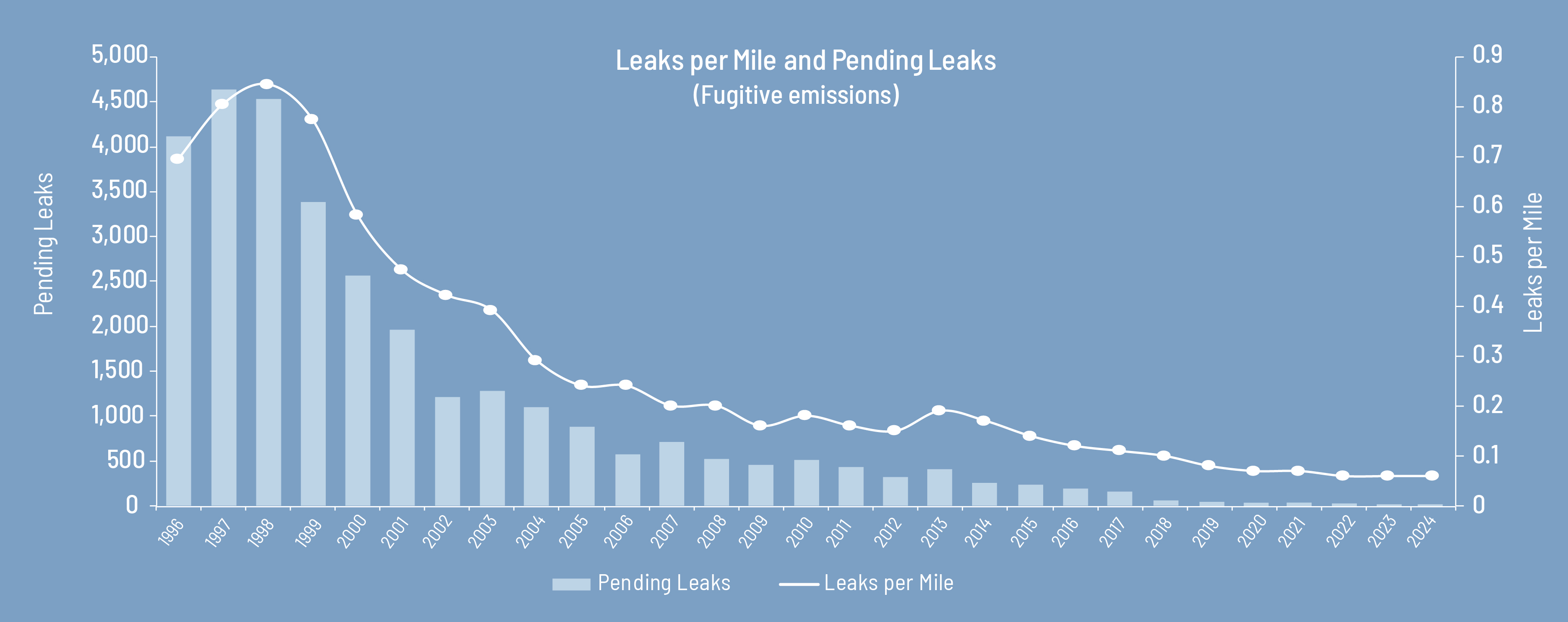Environmental
NJR recognizes the imperative of climate change and supports emission-reduction goals. Our company has a strong track record and commitment to decarbonization across our subsidiaries, including the establishment of meaningful goals to reduce our emissions from all our New Jersey operations through 2050.
Learn more.
NJR has established both long-term and interim goals for emissions reduction from our New Jersey operations. We have a history of success in achieving our company's targets, which dates to our original emission-reduction goals established in 2007.
Our current goals include a 60% reduction in our New Jersey operational emissions by 2030 from 2006 levels and reaching net zero by 2050. These targets include Scope 1 and 2 emissions from NJNG, CEV, NJRHS and NJRES. As we work to achieve these short- and long-term goals, we are committed to transparency on our progress. We assess and report emission sources in line with the guidelines set forth in the GHG Protocol, as shown in this report.
Our Scope 1 emissions derive from our natural gas distribution system (as measured by the U.S. Environmental Protection Agency’s Subpart W reporting), the stationary combustion of natural gas in our facilities and the combustion of the various transportation fuels in our vehicle fleet, which include gasoline, diesel, compressed natural gas and — recently integrated this year — 100% renewable diesel.
Scope 2 emissions derive almost entirely from purchased electricity, of which NJR purchases 99% of its total usage from renewable sources.
NJNG's Green Hydrogen Project
NJNG developed and operates the first green hydrogen plant on the East Coast, which began operating in October 2021. It injects hydrogen into our distribution system to help reduce emissions. The plant produces enough hydrogen to blend at low rates into a section of the system. Learn more.
NJR’s Leadership in Low- and Zero-Emission Fuels
To reduce emissions while ensuring reliable energy delivery, NJNG is advancing efforts to replace fossil gas with renewable sources, such as RNG, clean hydrogen and other emerging clean-fuel technologies. These non-pipeline solutions can be introduced within or near our service area, offsetting unavoidable emissions and reducing fossil gas dependence, ultimately lowering net airshed emissions.
Deploying clean fuels to displace fossil gas and reduce pipeline system emissions as part of a broader integrated, energy-system decarbonization strategy can support 2050 emissions-reduction goals with lower costs and greater reliability than a single-solution approach. NJR is providing leadership in this area. Learn more.


Operating a Premier Distribution System
For over a decade, NJR has made prudent investments in the removal of leak-prone materials including cast-iron and base steel, which supports the reduction in leaks per mile and consistently ranks NJNG’s system as the most environmentally friendly in the state. In fiscal year 2024, NJNG reported 0.06 leaks per mile of our distribution infrastructure.
As a company headquartered at the Jersey Shore, we recognize the recreational, ecological and environmental value the coast offers for all residents. That’s why in 2021, we launched the Coastal Climate Initiative to advance environmental restoration, preservation and stewardship in our coastal communities and beyond.
Through this program, we’re supporting the mission of environmental nonprofits to help advance projects and programs designed to improve the resiliency of our ecosystems and impacts from climate change, as well as strengthen community engagement and environmental education.
Learn about our recent milestone commitments toward projects in our local communities.


Conserve to Preserve®
Under our Conserve to Preserve initiative and SAVEGREEN® offerings, NJNG actively promotes conservation and energy-efficiency practices to help all our customers reduce their energy costs.
Learn MoreIn fiscal 2024, NJNG invested over $71 million — the company’s largest annual investment in energy-efficiency programs to date — in a variety of programs to support the installation of new and efficient equipment, resulting in an annual customer savings of 4.7 million therms while eliminate over 25,000 metric tons of CO2 from the atmosphere.
Learn More


